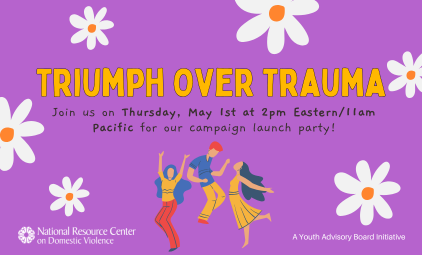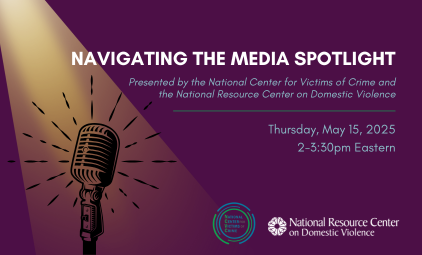The Adult Children Exposed to Domestic Violence (ACE-DV) Leadership Forum, a project of the National Resource Center on Domestic Violence (NRCDV), is comprised of advocates in the movement to end gender-based violence who identify as having experienced domestic violence in childhood. The Leadership Forum was established to amplify the voices and experiences of ACE-DV to enhance our work to end domestic violence.
As part of this work, the ACE-DV Speakers Initiative was developed to help build the capacity of adult survivors of children’s exposure to share their stories publicly. The Initiative includes the creation of a Speakers Bureau and the development of capacity building tools, including this guide.
This guide, designed for adult survivors, explores the power of storytelling and the unique value that stories of adult children exposed to domestic violence can bring to social change movements, offering guidance for 1) assessing readiness, 2) finding your voice, 3) clarifying your message, and 4) attending to your wellness. Considerations for speaking to key audiences are also included.
This resource is a companion piece to the NRCDV publication, From the Front of the Room: A Public Speaking Guide for Domestic Violence Survivors & Advocates (September 2011). It is intended for adult survivors of childhood exposure to domestic violence at any point along the path to healing and resilience – whether you identify as a survivor, an advocate, or both – as a capacity-building tool for harnessing the power of your story to impact change.














